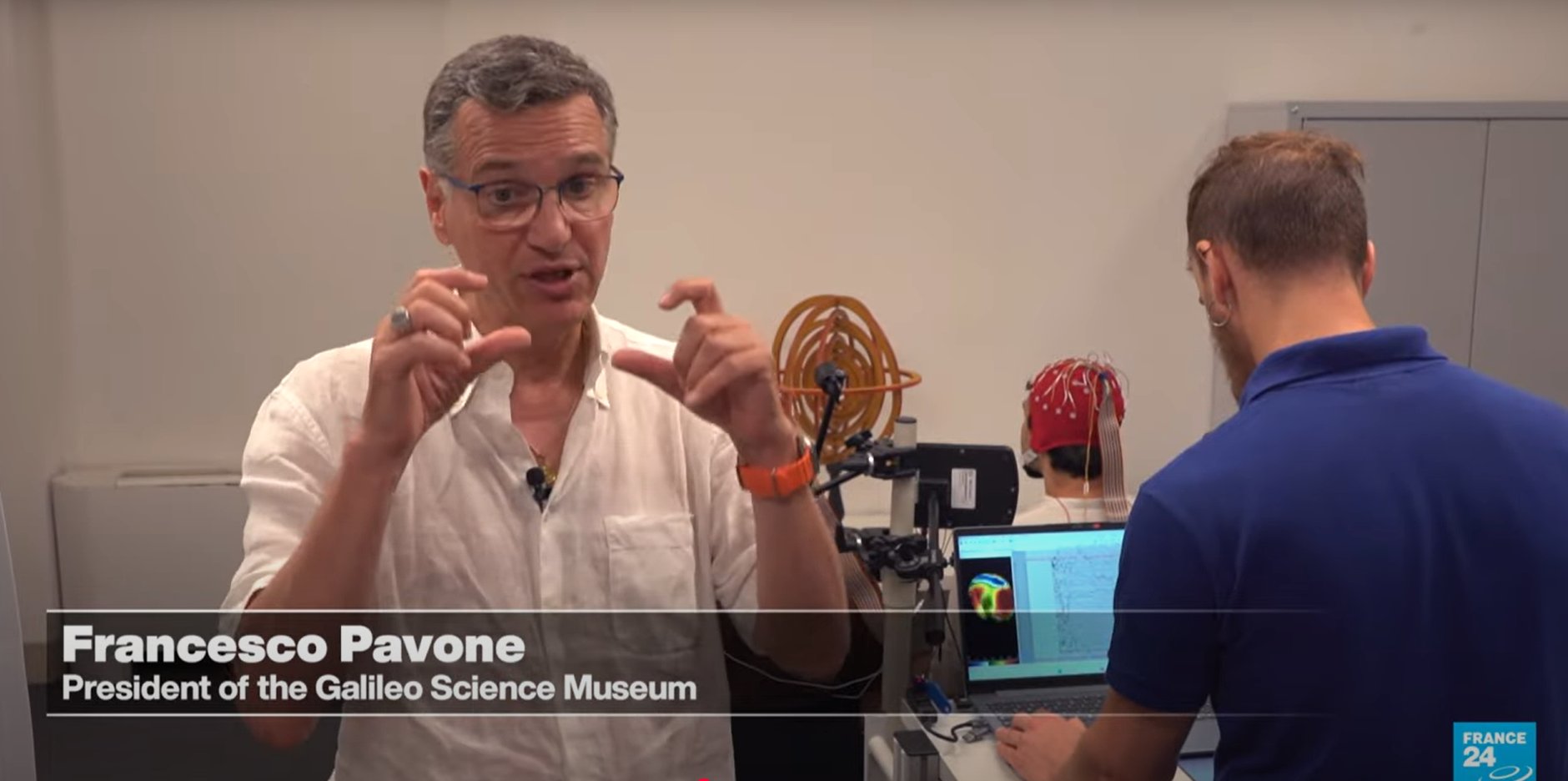On 7 March 2025, the Museo Galileo in Florence hosted the official inauguration of the Neuroaesthetics Laboratory, a pioneering initiative born from the collaboration between the Museum, LENS (European Laboratory for Non-Linear Spectroscopy), and the Department of Physics at the University of Florence. The initiative is part of the Tuscany Health Ecosystem (THE) project, funded by Italy’s National Recovery and Resilience Plan (PNRR).
The laboratory represents the first national scientific research facility of its kind established within a museum context in Italy. Its mission is to investigate how artistic and cultural experiences influence brain activity and individual wellbeing, through the application of cutting-edge, non-invasive neurophysiological measurements.
The significance of this milestone has attracted international attention, with a dedicated video report broadcast by France 24. The piece features interviews with Professor Francesco Pavone, President of Museo Galileo and scientific lead of the LABS group, as well as other members of the research team. Filmed inside the museum, the segment highlights the unique opportunity to conduct neuroscience experiments in direct contact with historical scientific instruments and works of art.
As Professor Pavone states in the interview, “The ambition of this project is to bridge neuroscience and the humanities, and to provide objective scientific data on how exposure to beauty, culture and art impacts the human mind and promotes wellbeing.”
The Neuroaesthetics Lab is equipped to collect neurophysiological data through EEG, ECG, electrodermal activity and respiratory monitoring, all with non-invasive sensors. The first experimental sessions will begin soon, with volunteers among museum visitors invited to participate in the research protocol.
The broader vision is to contribute to a deeper understanding of the biological underpinnings of aesthetic experience, while promoting the role of museums and cultural institutions as places of care, wellbeing, and social inclusion.




